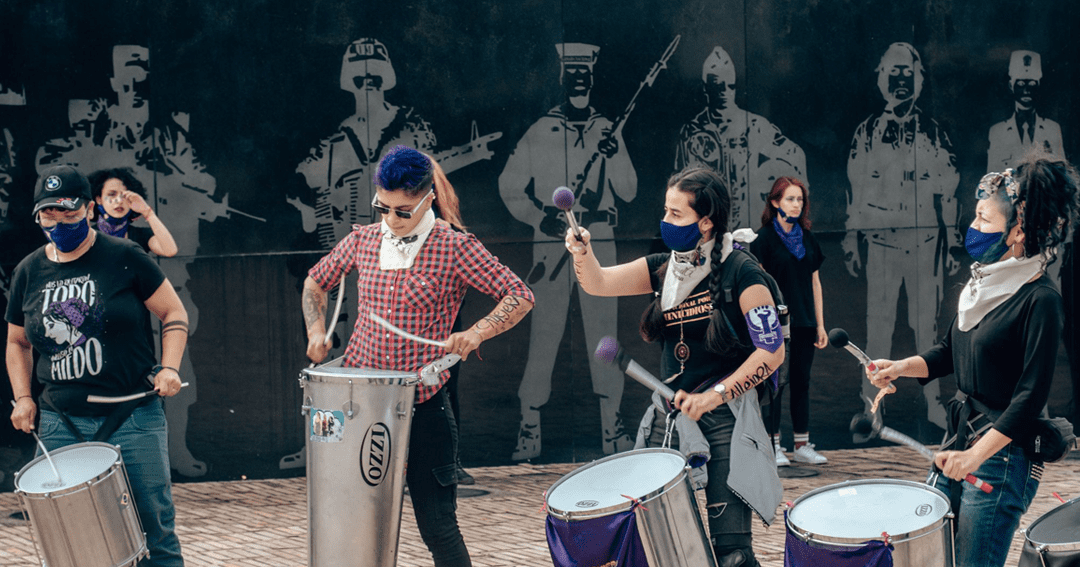Masculinities

At WILPF Colombia we recognize that cisgender men, trans men and men of diverse sexual orientations should have a role in the transformation of patriarchal structures that affect, in various ways, the socio-political and cultural composition of our country and the world. When we speak of masculinities, it is more accurate to speak in the plural in order to move away from reductionist conclusions about the gender expressions associated with men, since there is not only one type of masculinity. Masculinities are multiple and vary according to the cultural context and the subjective experiences in which they are developed, since they are collective social constructions that take shape in specific and simultaneously diverse practices. Different types of masculinities coexist in the same culture and are constructed, shaped, and changed by the hierarchical, transformational or exclusionary relationships they have.
From an awareness of the responsibility of social and citizen movements to place themselves within the framework of critical reflections, and based on our antimilitarist approach, at WILPF Colombia, we promote dialogues on hegemonic and militarized masculinities that are located within a system of gender-based power relations which constitutes patriarchy. This reflection allows us, in line with Cynthia Cockburn's analysis, to understand masculinities as a social construct, which takes shape in the spaces men occupy and how they occupy them. In this understanding, masculinities and their construction can be institutionalized, especially when referring to hegemonic masculinities, since these are in the State’s interest to reproduce.
These types of masculinities have been a concern of WILPF Colombia because of the violent effects they have on the bodies and lives of women. In a militarized country derived from a colonizing heritage, like ours, it is necessary to explore, reflect and transform the way in which these masculinities are constructed, since they are oppressive and violent towards women -for example, in interpersonal relationships, in the family, school, the State, the street, etc.-. There are countless forms of violence against women that, in part, are made possible because the masculinities that are constructed in our Colombian society are marked by militarism, hierarchy and violence.
Through our work in the country we have explored these points in greater depth in publications such as Feminist Voices: dialogues from pacifism and antimilitarism, as well as in the development of symbolic actions and solidarity dialogues that seek to Confront Militarized Masculinities. Therefore, through knowledge management, the transformation of imaginaries, community work, pedagogy and political action, WILPF Colombia works to promote alternative constructions of masculinities that promote equality and the recognition of women as political subjects.

